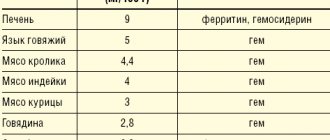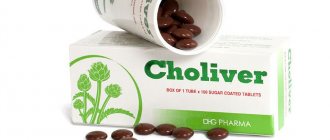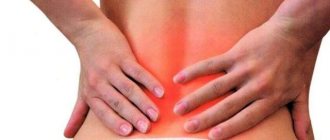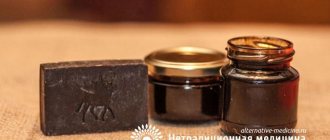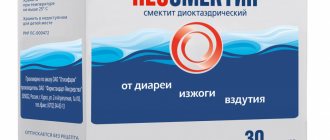Many people know what toothache is. Sometimes its intensity increases to such an extent that it is simply impossible to endure the torment. Often this problem occurs at night, when it is not possible to immediately go to the dentist. In this case, you have to use various painkillers and other medications. Previously, dental drops, which can be purchased at almost any pharmacy, were especially popular. Do they really help relieve pain?
What kind of drug is this and how does it work?
Several types of drops are used in dentistry - for teething, for inflammation (for example, gingivitis or periodontitis1), as well as for toothache. In today’s material we will talk specifically about those that relieve pain in the teeth when they hurt.
Drops are used to eliminate pain in the teeth
It is important to know! The product is intended for temporary pain relief if a person is currently unable to visit the clinic - for example, if the pain began in the evening or at night, on weekends or on holidays.
Dental pain drops are taken differently from tablets - i.e. not inside, but outside. To be more precise, the product is applied to the tooth and acts through its surface, and not through the circulatory system. By the way, in addition to relieving pain, the solution for topical use has a locally irritating or “distracting” effect, sedative (calming) and antiseptic properties.
Types of dental drops
Dental drops are produced by several pharmaceutical companies located in Tula, Yaroslavl and Ivanovo. Basically, all products produced have a similar composition and differ only in name. The composition of the medicine for the relief of toothaches usually includes: camphor oil (disinfects the oral cavity and prevents infection of soft tissues and neighboring teeth); peppermint oil (cools the gums, thereby reducing their pain, relieves swelling during gingivitis and periodontitis); valerian tincture (has a sedative effect on the body, reduces the severity of inflammation).
Drops are sold in pharmacies in bottles of 10-100 ml. Each bottle is equipped with a pipette for precise application of the drug to the problem area. How much do the drops cost? The average price of a medicine is from 15 to 40 rubles.
Below we will consider the best drops that help eliminate toothache without harm to health:
- Phytodent. The product consists of natural ingredients such as calamus, calendula and chamomile.
- Denta. The drug is suitable for eliminating severe pain associated with pulpitis and deep caries.
- Dentinox. The drops contain lidocaine and are suitable for use during teething in infants.
- Stomagol. The medicine is used to relieve discomfort associated with infectious diseases of the oral cavity.
- Dantinorm. Used to alleviate the condition of the child during the formation of the primary occlusion.
Dantinorm - drops for teething in children
All of the above remedies provide only temporary pain relief. Only a doctor in a clinical setting can cope with the cause of the pathology. In any case, dental drops are not a panacea for the problem.
What's included
The composition of the product consists of only three active ingredients, familiar to almost every person. This includes the following components:
- peppermint leaf oil,
- tincture of medicinal valerian,
- camphor (but not natural, but synthetic).
The drug has plant components.
Most of the mass of the transparent solution is occupied by natural plant substances, which give it a reddish-brown color and a specific smell. The drug is packaged in dark glass bottles of 10-15 ml.
Compound
Preparations in the form of drops have a weak and moderate therapeutic effect regarding toothache. Most often, preparations are made based on natural remedies - peppermint, valerian and camphor. They not only reduce the intensity of pain, but also have anti-inflammatory and antimicrobial effects. Salicylic acid, ethyl alcohol or glycerin can be used as an additional component in the drops.
In combination, all components have several therapeutic effects:
- relieve the symptoms of pain, so that a person can carry out everyday activities;
- inhibit the activity of pathogenic flora and prevent the rapid development of caries;
- reduce the intensity of soft tissue inflammation.
The drug cannot be used as a treatment for dental disease, despite its wide spectrum of action. A person should consult a doctor at the first opportunity, even if the signs of discomfort in the mouth are no longer bothersome.
Can it be used in children?
Manufacturers indicate that toothache drops are indicated only for adults and children over 12 years of age. Moreover, from 12 to 18 years of age, the product should be used with caution. That is, for those children whose age has not yet reached 12 years, this drug is contraindicated - and you need to look for alternatives (for example, tablets and syrups based on ibuprofen or paracetamol).
The use of the drug is contraindicated for children under 12 years of age.
On a note! Children's drops can be used from a very early age - but only if this remedy is not for pain in the tooth itself, but during its eruption. Such drugs include, for example, the “Dantinorm Baby” or “Dentinox” solution.
Drop substitutes
If there are no drugs at hand that can relieve toothache, then you can turn to traditional medicine. One of the effective methods is saline or soda solution. In order to relieve pain, you need 1 tsp. dissolve one or another substance in 1 glass of water. Rinse your mouth with the solution every 30 minutes until pain relieves. To make the solution work faster, you need to add 15 drops of ammonia to it.
Lard will help partially cope with toothache. To do this, just take a small piece of the product and apply it to the problem area. The pain will begin to subside after 5-10 minutes
Instructions for use and side effects
You can understand how to use dental drops by reading the brief instructions. Manufacturers recommend moistening a small cotton swab with 2-3 doses of the product (i.e. 2-3 drops) and applying it to the sore tooth. However, this technique does not help some patients; then it is advised to apply 2-3 doses of liquid on a cotton swab and lubricate the entire surface of the diseased tooth.
Manufacturers recommend moistening a small cotton swab
Interesting to know! How to use dental drops for toothache if there is a carious cavity in the tooth (in other words, a “hole”)? Here, experts recommend placing a cotton swab moistened with a solution into the desired cavity - this way the components of the drug will quickly penetrate to the source of pain.
Rules of application
To eliminate the discomfort associated with caries or pulpitis, you need to take dental drops according to the following scheme: a small piece of cotton wool is moistened in the solution and applied to the carious cavity for 5-10 minutes. After this time, the cotton wool is removed from the tooth and thrown away. If the integrity of the enamel is not compromised, then only the soft tissue around the problematic element is wiped with a swab.
For painful eruption of wisdom teeth in adults, the solution is used according to a different algorithm: a cotton swab dipped in the preparation is used to treat the inflamed gum or use it instead of a compress for 10-15 minutes.
For stomatitis, use an aqueous solution of dental drops. To do this, dissolve 10 drops of medicine in 200 ml of boiled water. Rinse your mouth with the prepared product for 1 minute. The mouth is treated in the same way in the presence of ulcers and erosions on the mucous membranes.
To eliminate signs of gingivitis, dental drops are added to tooth powder or toothpaste. After this, standard hygiene procedures are carried out.
The drug is sold in pharmacies without a doctor's prescription, as it has a minimal list of contraindications and side effects. A serious contraindication to the use of the drug is the presence of epileptic seizures, fainting and heart rhythm disturbances.
To get rid of swelling of the soft tissues of the mouth, which is observed against the background of dental problems, you need to take an antihistamine. For adults, Claritin, Suprastin are suitable, for children - Fenistil.
Pregnant
Toothache is quite common in pregnant women. The cause of this condition is hormonal imbalances and physiological changes in the body. The formation of the fetus requires a lot of calcium, and if the child does not get it from food, then he takes the necessary components from the mother. Because of this, pregnant women are more prone to developing caries and pulpitis. Untimely treated caries poses a threat not only to the woman, but also to the baby, since an infection from the oral cavity can spread throughout the body.
Many dental drops contain ethyl alcohol, which even in small doses can harm the fetus. Therefore, before using dental drops, a pregnant woman should consult a specialist.
For toothaches, pregnant women should not consume many types of potent drugs, as they can negatively affect the formation of the fetus. In this case, dentists recommend pain-relieving drops. The drug can also be used during lactation with the prior permission of the pediatrician and dentist.
For children
During the period of teething in children, it is better to give preference to gentle drugs to relieve unpleasant symptoms. Dental drops contain alcohol, so they are not recommended for use to relieve suffering in a baby. Alcohol can cause burning of the mucous membranes and their irritation. Before using any medicine for children, you should first consult with a specialist.
Instead of drops when teething, it is recommended to use special creams or ointments with a softer composition. The drugs are used 3 to 6 times a day, depending on the severity of pain symptoms. Medicines in the form of gels and creams are used for up to 3 years, as their use is more effective and safe.
Drops are more suitable for children over 3 years of age. They help relieve dental pain associated with caries. The disease often occurs in primary teeth, since they have more fragile and thinner enamel than the molars. Painkiller drops are allowed to be given to children only in emergency cases, for example, if going to the doctor in the near future is not possible.
Dental drops can be safely given to children over 12 years of age. There are practically no contraindications for use for this category of patients; the main thing is to follow all the rules outlined in the instructions for use.
Precautions and special instructions
Since the drug is prohibited for oral administration, because In this case, it may cause nausea or diarrhea, so it should be kept out of the reach of children. And it is better to use the product away from cats, who react strongly even to the smell of valerian.
Special instructions! The drug reduces concentration, therefore it is not recommended for people whose occupation involves traffic - road, rail, aviation, as well as with dangerous mechanisms, and working at heights.
People with allergies should use the drops with caution.
The presence of plant components in the composition can provoke allergies, especially if a person has a predisposition. Therefore, carefully monitor the body’s reaction - the appearance of a rash, itching, difficulty breathing (especially dangerous!) is a need to stop the drug and see a doctor immediately.
Popular varieties and their names
Most manufacturers did not change the name of drugs for toothache, which became famous back in Soviet times. Products called “Dental drops” or “Dental drops” can be found in almost any pharmacy. The drug is also produced under the brand name “Dentaguttal”. The composition and concentration of active ingredients in all preparations are the same.
The production of anesthetic solutions is carried out by Russian laboratories - “Moscow Pharmaceutical Factory”, “Yaroslavl Pharmaceutical Factory”, “Ivanovo Pharmaceutical Factory”, “Samaramedprom”, “Tula Pharmaceutical Factory”. There are also several factories producing this product in the CIS countries.
Comparative characteristics of drops and tablets
Which is better: dental drops or painkillers? To answer the question, it is necessary to consider a comparative table of drugs according to several main criteria.
| Criterion | Drops | Pills |
| Compound | Mostly herbal ingredients are added to the drug | Contain chemical compounds with a potent effect (paracetamol, ibuprofen) |
| Therapeutic effect | 5-10 minutes after application | 15-20 minutes after administration |
| Possibility of use during pregnancy | Can be used with the consent of a doctor | Contraindicated in the early stages of pregnancy |
| Side effects | Mostly well tolerated by patients. In rare cases, abdominal pain may occur | They provoke irritation of the mucous membranes of the stomach and lead to exacerbation of chronic forms of gastritis and ulcers. Excessive consumption may cause liver and kidney dysfunction. |
As can be seen from the comparison table, drops are considered safer for health than tablets. For this reason, the drug is often prescribed to relieve toothache in children and pregnant women.
Which is better - drops or tablets, important nuances of use
If we compare drops for toothache and painkillers, then a lot will depend on the initial condition of the tooth and the person’s pain threshold. Dental drops have a quick and effective effect if the “nerve” is preserved in the tooth - a neurovascular bundle in the internal cavity.
But if the tooth was once treated for pulpitis or periodontitis, and now the pain has returned, then tablets will be more effective. Since the dental nerve is no longer present, the drops simply will not work in this case.
In some cases, it is more advisable to use tablets
“I had a bad toothache during the May holidays; we were just visiting my grandmother outside the city - so there were no hospitals or pharmacies nearby. And my grandmother offered me dental drops (I had never even heard of these, but they, it turns out, are considered an old and proven remedy in our family!!) What’s great is that they really helped me “live” these days to the dentist. But my husband tried it a few weeks later and it didn’t work on him.”
Yulia R., 33 years old, review from woman.ru
Patient reviews
Lera, 19 years old. Since childhood, my dad has had very fragile teeth: they quickly decay and are acutely sensitive to hot and cold food. Previously, he used painkillers to relieve suffering. Dad crushed the tablets and applied them to the problematic element. Over time, this method stopped helping. Now his only salvation is ordinary dental drops for 35 rubles. When discomfort occurs, dad applies a lotion with the solution to the aching tooth. He experienced relief of symptoms within 10 minutes.
Ilona, 29 years old. After childbirth, the sensitivity of the enamel became greatly aggravated. The peak of toothache occurred during the period when I was breastfeeding my baby. Many painkillers at that time were prohibited for use for me, as their components could pass into breast milk. I couldn’t go to the dentist because the toothache appeared on the weekend. My husband brought a bottle of liquid called “Tooth drops” from the pharmacy. I did not believe in the effectiveness of this product, since its price was only 30 rubles. I used the drops according to the instructions and after 10 minutes I noticed relief from my pain. I was pleasantly surprised by the result, because this inexpensive drug helped me no worse than powerful painkillers. I would like to immediately note that the drug can only be used in emergency cases, after which it is necessary to see a doctor.
Dental drops are a homeopathic remedy that effectively relieves signs of caries, pulpitis, gingivitis and other dental diseases. The drug not only has an analgesic effect, it effectively relieves inflammation and promotes the healing of wounds in the mouth. It is important to remember that medications only temporarily relieve toothache; to completely eliminate the problem, the help of a doctor is necessary.



